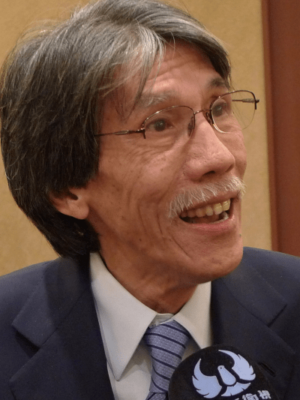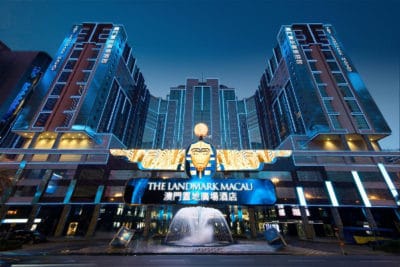
David Chow is co-chairman and CEO of Macau Legend Development
Casino billionaire David Chow’s Macau Legend Development is poised to sell the Landmark Macau hotel and gambling complex for HK$4.6 billion ($590 million), shedding one of its two flagship properties in the gambling mecca.
The Hong Kong-listed firm has announced its intention to sell a 100 percent interest in the 80,129 square metre Macau property, which features Pharaoh’s Palace Casino and a five-star, 439-room hotel, to a group of investors in a bid to streamline its operations.
The buyers include Dong Lap Hong Property Investment Co Ltd, which has agreed to take a 58 percent stake in the asset, as well as three other companies controlled by children and associates of Dong Lap Hong’s owner Chong Sio Kin. Chong is a local property investor who is also a junket partner to Macau Legend.
The sale, which not yet been finalised, requires approval by the local casino regulator and by SJM Holdings, the gaming concessionaire that operates the 67 tables at Pharaoh’s Palace. Macau Legend Development has made two previous attempts to sell the property since last year.
Will Chow Finally Get the Landmark Macau off His Hands?
Macau Legend Development Ltd, one of the leading entertainment and casino gaming owners and operators in Macao, said it was disposing of the property to focus on the operation and development of its other major project, Macau Fisherman’s Wharf.

The Landmark Macau just might sell for $590 million
The statement marks the third time the company has tried to offload the property since March 2016, when Macau Legend announced it had a potential buyer identified as “Li C.K.” and a substantial shareholder in the firm. However, a letter of intent regarding the prospective sale expired last September.
Then, this past July, Macau Legend announced another prospective sale of the property, saying it had a non-binding letter of intent without specifying the buyer or the price.
Gaming revenue at the Pharaoh’s Palace, Macau’s first themed casino, dropped 22.6 percent year-on-year in the first half of 2017, according to the company’s interim report. The Landmark Macau accounted for about HK$100 million, or approximately 34.2 percent, of the group’s total non-gaming revenue during the same period.
Following the proposed sale, Macau Legend subsidiary Hong Hock will continue to provide gaming services at the casino, for as long as SJM retains its status as a gaming concessionaire in Macau. SJM will pay Hong Hock a service fee of around 15 percent of gross gaming income for the operational expenses of running the casino, while the project company that owns Macau Legend will pay Hong Hock another 0.5 percent.
Local Investor Doesn’t Have a Plan, Yet
In an interview with gaming industry website GGRAsia, the primary buyer, Chong, said that he and his fellow investors aim to “enhance the gaming business at Landmark Macao.” Chong added that no concrete plans had yet been drafted for positioning the property and improving the gaming services.
The Macau-based investor revealed that the other buyers of the property are controlled by his children and members of the Macau General Association of Real Estate, which he heads as president of the board. Chong is currently an investor in a VIP junket operation at the Landmark Macau, Neptune Palace, which he says he started in 2004.
Macau Legend To Focus on Fisherman’s Wharf
Macau Legend Development plans to use the proceeds from the sale of the Landmark Macau for the redevelopment and upgrading of Macau Fisherman’s Wharf, a newer and larger property that the company says has more growth potential.
“The Board believes [Macau Fisherman’s Wharf], which is the only major waterfront entertainment complex in Macau that is easily accessible to Macau residents and overseas visitors, could attract and cater for a greater number of patrons,” according to the stock exchange filing.
The property, a 133,000 square metre complex that was opened in 2006, can also be further developed through land reclamation. By contrast, the 1997-era Landmark Macau is fully developed and has no room for future expansion, according to the company.
Leave a Reply